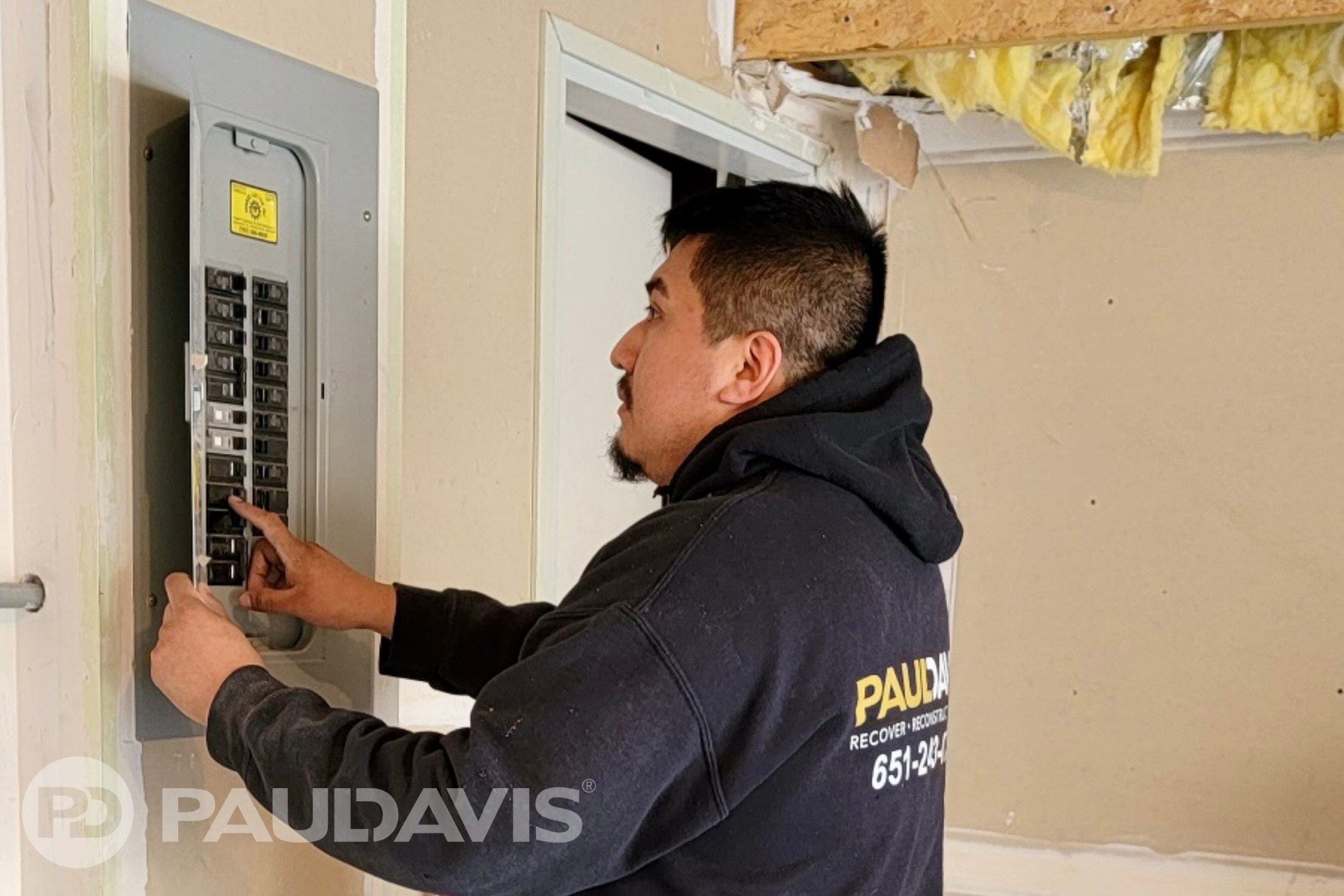
Marcy wasn’t at the grocery store for long but when she arrived home, she detected the smell of burning right away. “I went through the house trying to figure out where it was coming from,” she says. “In a dark bedroom, a pink light glowed in the corner and when I got closer, I could see the outlet cover was cherry red. I’ve never seen anything so strange in my life! I ran downstairs and shut off the circuit breaker.”
Marcy called an electrician to request immediate service. Fortunately, she had narrowly averted a house fire sparked by faulty electrical wiring. “Electrical wiring isn’t a forever system in your house,” advises Caleb Brunz, President, Paul Davis of Greater St. Paul and Minneapolis. “It needs maintenance and perhaps replacement because technology improves, new safety features are available, time degrades wiring materials and frequent use damages connections. Ignoring your wiring is risking a devastating fire.”
Brunz gives customers a list of questions that flag wiring in need of professional inspection.
- Is your home over 40 years old? Older homes may have wiring made of aluminum (commonly installed in the 1960s and 1970s) that can loosen, wires insulated with cloth that becomes brittle (common in pre-1950s homes), or even ceramic knob-and-tube systems (in homes that date from the 1800s through the 1930s).
- Do your circuit breakers trip regularly? This is a sign that your circuits are carrying too much current.
- Do you get jolts or tingling if you touch switches, appliances or outlets? Current is escaping its connections and electrifying nearby materials – a serious hazard.
- Do your lights flicker? If lights dim regularly when weather is calm - or when you use a switch or outlet - it usually indicates loose connections or overloaded circuits.
- Do you smell burning, see discoloration or feel warmth from an electrical appliance, switch, outlet or unidentified source? This is another signal that current is escaping its connections and contacting nearby materials - an emergency that requires immediate professional attention.
- Do your outlets have two prong receptacles? Older outlets did not include a grounding prong receptacle because the cable feeding them lacked a grounding wire. Grounding offers an extra path for electrical current to travel if a short circuit occurs and it is an essential safety feature.
- Do your wet areas – bathrooms, kitchens and the like - lack ground fault circuit interrupter (GFCI) outlets? GFCIs have saved countless lives by detecting escaping current and shutting off the power in milliseconds – an especially important safety feature when electricity is used near water.
“Electrical fires make up a significant percentage of all house fires – experts say tens of thousands occur each year, inflicting serious injuries and deaths as well as causing hundreds of millions of dollars in damage,” Brunz concludes. “Asking yourself a few simple questions now about your home electricity can save lives and properties.”
